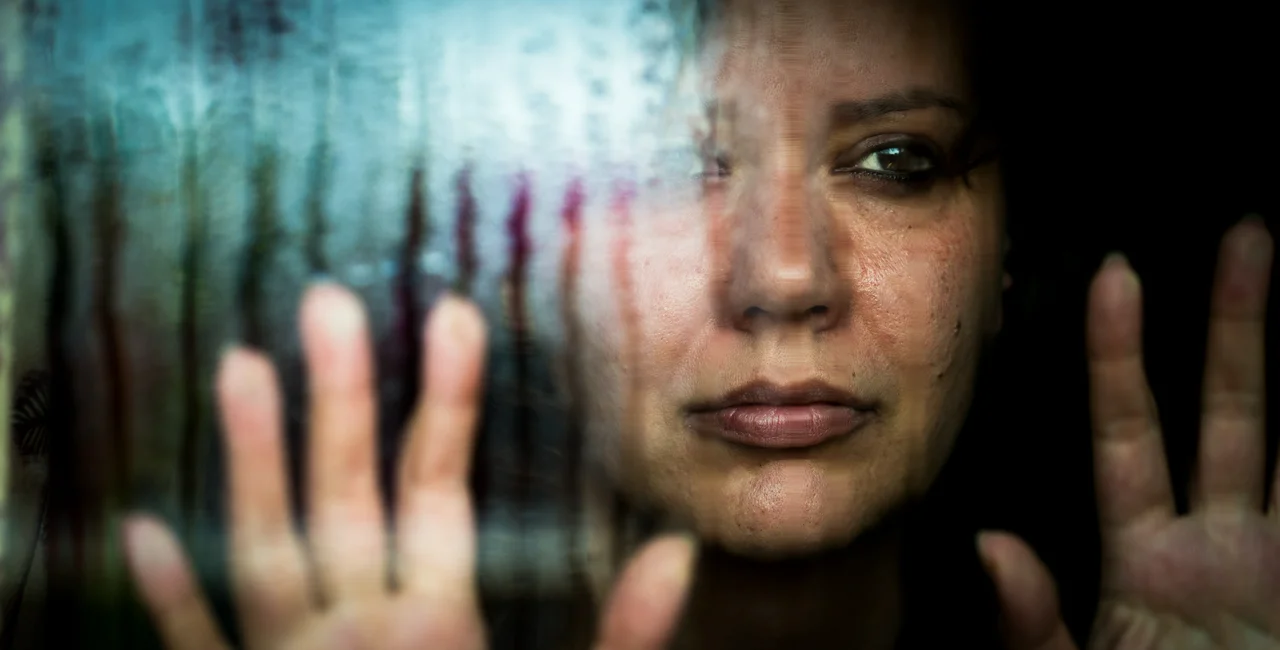Nov. 25 marks the International Day for the Elimination of Violence against Women. Here in the Czech Republic, newly released statistics reflect a disturbing increase in violence against women while Covid-19 measures have intensified many already unstable domestic situations.
A new poll found that 85 percent of adult Czechs consider domestic violence a serious and substantial problem, while about 5 percent of those who took part in the poll believed the issue was exaggerated.
The survey asked respondents what they consider to be violent behavior and where they would seek out help if a person close to them was in danger.
"The pandemic has caused a greater degree of isolation, greater control by the abuser, economic impact, but also a worsening of the possibilities for help," said Branislava Marvánová, Head of Information at the ROSA Advisory Center, a non-profit organization that provides comprehensive support for victims of abuse.
"For many women and children, home is now a dangerous place," she added. Research suggests that the number of requests for help from victims has increased 40 percent during the pandemic, as has the growing desire for information on what constitutes domestic violence. The pandemic has also overburdened already underfunded support centers.
Blanka Nyklová of the Institute of Sociology of the ASCR said that slaps in the face, kicks, forced sex, insults, and restricted access to money were considered among female respondents to be more serious types of abuse than by male respondents.
In contrast, one fifth of men either do not know about the issue or consider it exaggerated. These are predominantly people with elementary education, the elderly, owners of small businesses, middle managers, and people living in child-free households.
Domestic violence is a serious issue for 62 percent of the respondents and substantial for 23 percent, while 10 percent do not know and 5 percent deem it exaggerated.
Slaps, kicks, and hair pulling constitute violence for 81 percent of women and 65 percent of men in the Czech Republic. Forced intercourse and unwanted sexual advances are deemed violent by 79 percent of women and 59 percent of men. Various insults are perceived as harmful by 61 percent of women and 40 percent of men, while restricting access to money is an issue for 37 percent of women and 27 percent of men.
Where to find English-language support for domestic violence
- Rosa centrum offers online chat, crisis prevention, and internet counseling.
- Acorus provides a secret shelter and social counseling for victims of domestic violence.
- ProFem offers legal help, intervention, and online counseling.
- Bílý Kruh Bezpečí offers a free, non-stop helpline for victims.
- Bright Sky CZ mobile app by Vodafone detects domestic abuse and offers numerous support tools. It can now be downloaded in English; from Nov. 6 it does not use data.
According to the World Health Organisation domestic violence means long-term, repeated and escalating attacks of one household member against another one. It can be physical, psychological, sexual, or economic and its victims are mainly women. However, children are often targeted, too, and being forced to witness violent clashes is considered a form of domestic abuse.
"In the absolute majority of cases, the types (of violence) are combined," Nyklova said, adding that women consider all forms of violence causing great harm with the exception of refusal of intimacies.
Nyklová advised people who learn that a loved one is experiencing domestic violence to call the police. Asking for help or shelter among family or friends or consulting legal help are other options. But she argued that first and foremost, people should listen to what the victim wants since making an unsuitable choice on her behalf could have dire consequences.
It isn't just Czech women who are faced with the issue of domestic assault. We spoke to Jaroslava Chaloupková, director of Acorus, a non-profit organization offering shelter and support to victims of abuse.
"Beside Czech women, women of other nationalities are seeking our services on a long-term basis. Interestingly, the number of foreign women seeking our services has been steadily growing in recent years," she said.
Chaloupková said non-Czech clients most frequently come from the post-Soviet regions, such as Ukraine, Russia, Armenia, or Kyrgyzstan. But the center also has clients from Peru and Vietnam. While Acorus is able to provide counseling services in the English language Chaloupková says that accommodation options remain rather limited throughout the Czech Republic for non-Czech speakers.












 Reading time: 3 minutes
Reading time: 3 minutes 





























